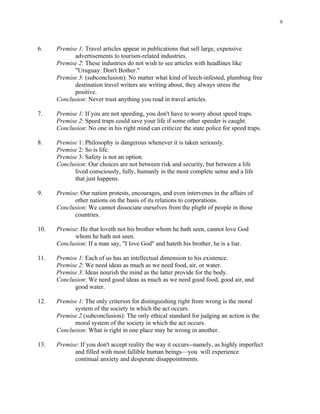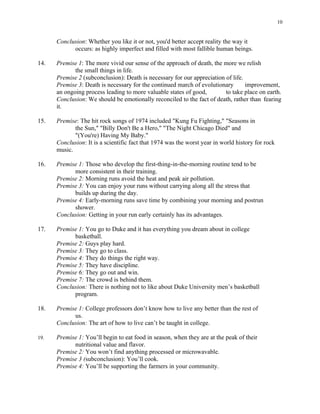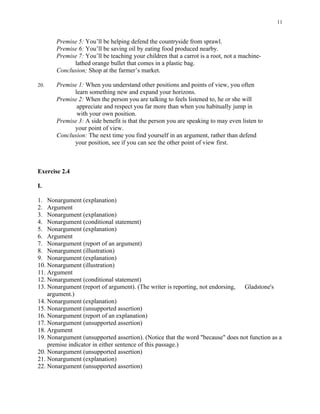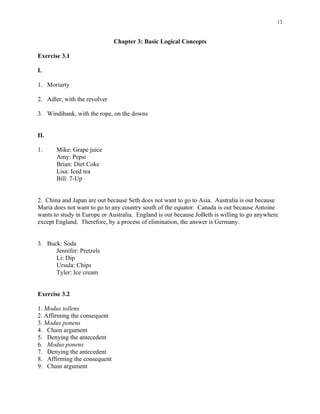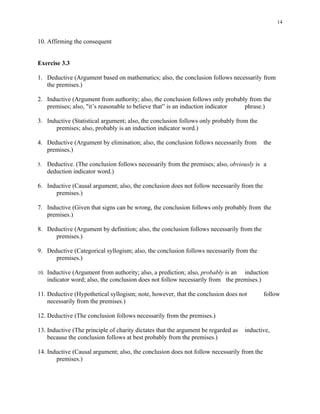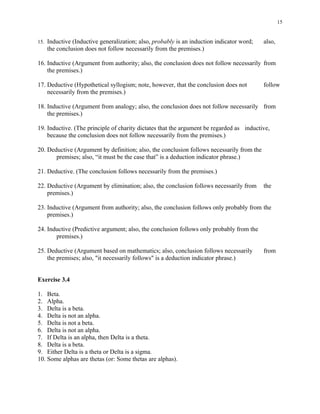This document provides exercises and discussion questions from a critical thinking textbook. It includes sample answers to questions about moral relativism and inconsistencies that can arise from it. It also provides examples of statements and non-statements, and examines arguments with multiple premises and conclusions.
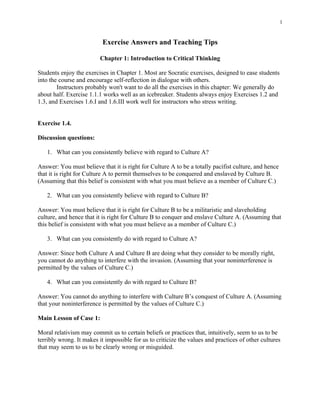
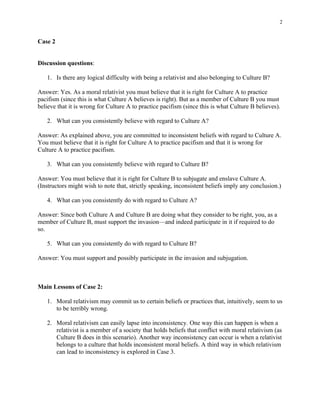
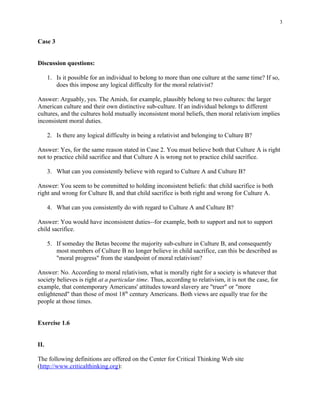
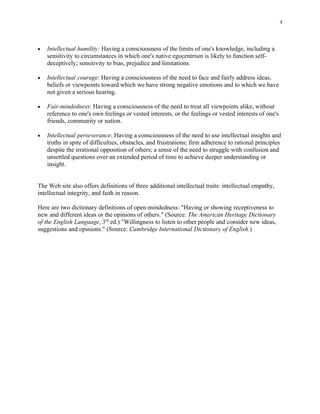
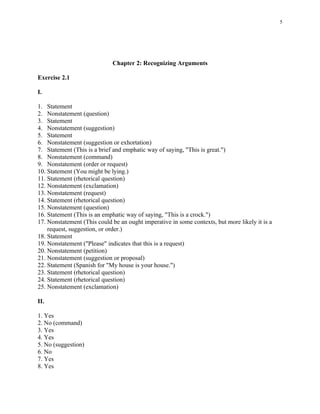
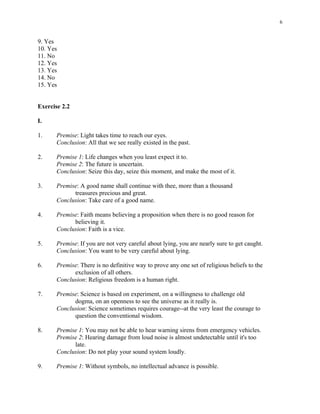
![7
Premise 2: With symbols, there is no limit set to intellectual development except
inherent stupidity.
Conclusion: The invention or discovery of symbols is doubtless by far the single
greatest event in the history of man.
10. Premise: On average, the lowest animal is a lot nicer and kinder than most of the
human beings that inhabit the earth.
Conclusion: Animals have souls.
11. Premise: The more stupid a member of Parliament is, the more stupid his
constituents were to elect him.
Conclusion: Democracy has at least one merit, namely, that a member of
Parliament cannot be stupider than his constituents.
12. Premise: When senility hit you, you won't know it.
Conclusion: Don't worry about senility.
13. Premise: Oil isn't helping anyone when it sits in the ground.
Conclusion: There's nothing wrong with burning crude [oil] like crazy, so long as
there's a plan for energy alternatives when the cheap oil runs out.
14. Premise: Everyone recalls the famous incident at Sybil Seretsky's when her
goldfish sang "I Got Rhythm"--a favorite tune of her deceased nephew.
Conclusion: There is no doubt that certain events recorded at seances are
genuine.
15. Premise: We need quality highways to handle the sharp increase in the number of
Mercedes automobiles purchased by lawyers enriched by the tobacco
settlement.
Conclusion: It's good that so far states are spending more than 90 percent of the
tobacco settlement money on programs unrelated to smoking, such as
building highways.
16. Premise: If we encourage each other to blame God for injustice, we are giving the
evil or dark side a victory by keeping God's precious children–that's all of
us–away from His loving arms.
Conclusion: Although it's part of human nature to be angry at God when bad things
happen, there' s no point in doing so.
17. Premise 1: In great contests each party claims to act in accordance with the will of
God.
Premise 2: God cannot be for and against the same thing at the same time.
Conclusion: Both parties in great contests may be, and one must be, wrong.
18. Premise 1: The Alaska bears are a distinct species.](https://image.slidesharecdn.com/exerciseanswerschapter123-110920042954-phpapp01/85/Exercise-answers-chapter-1-2-3-7-320.jpg)

